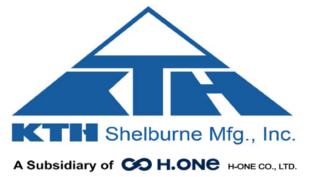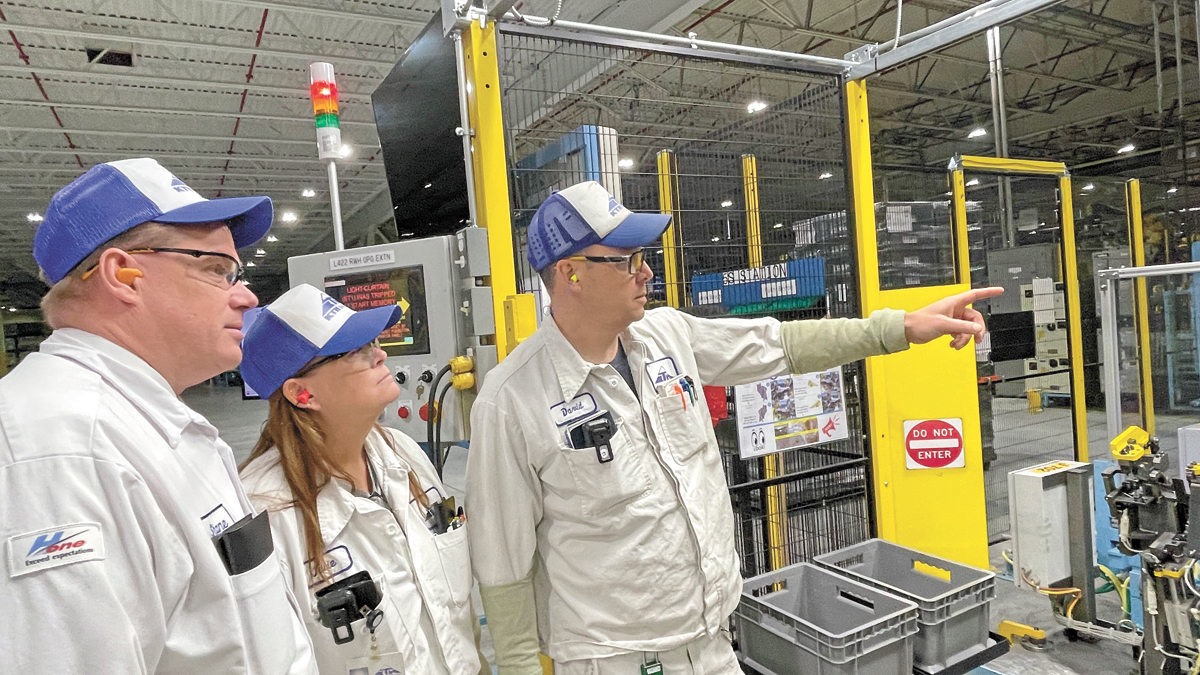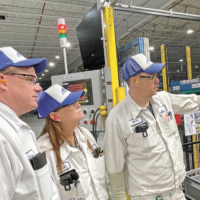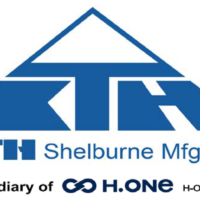As part of the KTH Parts Industries Group and a vital contributor to Canada’s automotive sector, KTH Shelburne Manufacturing Inc. (KSM) has played a significant role in strengthening Canadian–Japanese industrial ties. As the company approaches its 30th anniversary in 2028, KSM continues to be a driver of innovation, job creation and cross-border collaboration.

In an interview, President and Plant Manager Shane Hall reflected on the plant’s growth, evolving role and how Japanese values have shaped its operations and outlook.
Bridges: What milestone stands out in KSM’s 30-year journey?
Hall: Looking back, I would say it was 2014. Up to this point we knew we had a strong team of associates but that was the year Honda recognized our efforts and we were awarded The Challenging Spirit Award. It is the strength of our associates that showcases our company’s capabilities. Our capabilities are now expanding to additional OEMs (original equipment manufacturers) and thus our team continues to grow to match the new demands. Our level of stability allows for our associates and the community to know that we are a long-term partner.
How does KSM contribute to the competitiveness of KTH in North America?
The Canadian operations operate at the highest level of efficiency within the North American region. It is our responsibility to support all regional locations to set best practices and benchmarking activity. We just finished a 154,000-square-foot (14,307-sq.-meter) weld expansion and are undertaking a 70,000-sq.-ft. stamping expansion, with new stamping machines on the way.
How is KSM adapting to industry changes like electrification?
While the designs have certainly changed, the vehicles still require the underbody. Our process designs focus on what needs to be done to maintain precision while expanding the use of high-strength materials. While it certainly ups the level of complexity, our global team is ready for the challenge.
How has Japan’s influence shaped KSM and your experience?
To start with, some of my greatest mentors were my Japanese colleagues. Genba, genjitsu, genbutsu (actual place, actual situation, actual thing) — these words and their meaning are at the core of our management principles.
Over the years, I have come to think of Japan as somewhat of a second home. While we speak a different language, our hearts and minds are always connected, much like brothers and sisters!







